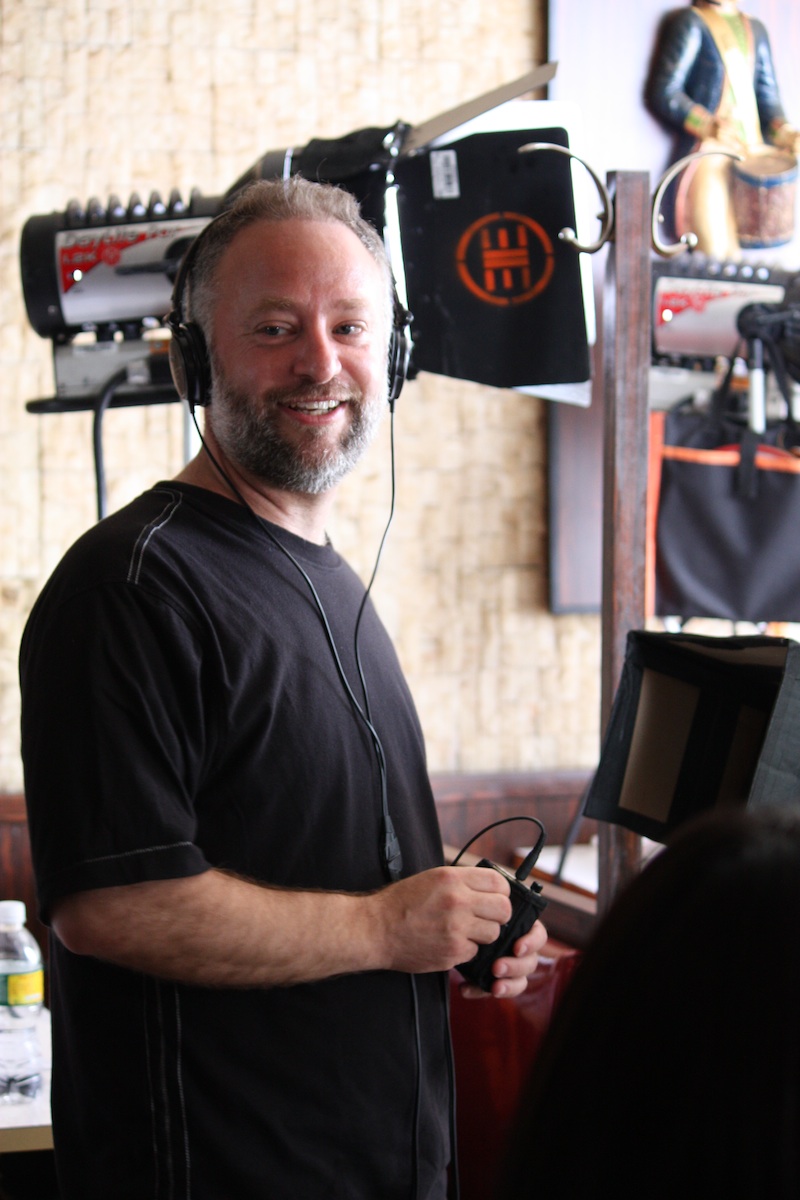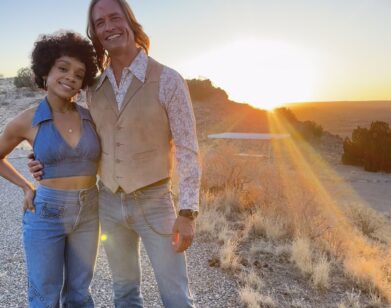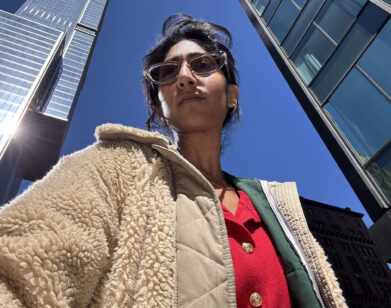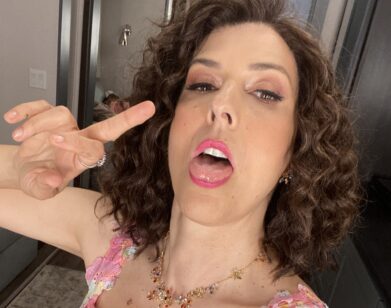Bryan Goluboff’s Paper Heart

BRYAN GOLUBOFF. PHOTO COURTESY OF SOPHIA ZAHARIOU
Hunter S. Thompson’s style of ’70s “gonzo journalism” played fast and loose with the facts, combining careening first-person perspective with in-your-face disdain for authority. In the clever new film Beware the Gonzo, teen reporter Eddie “Gonzo” Gilman (Ezra Miller) creates his own underground newspaper when the corrupt editor-in-chief (Jesse McCartney) of the high school’s official newspaper refuses to print Gonzo’s investigative piece accusing his football player pals of steroid use. Gonzo’s alt-zine provides a voice for the school’s freaks, geeks, misfits, and outcasts (including Zoe Kravitz) in the most slyly subversive teen film since Heathers. Acclaimed at last year’s Tribeca Film Festival, Beware the Gonzo is the sharp, punk-edged directorial debut of screenwriter Bryan Goluboff, who previously adapted poet/rocker Jim Carroll’s memoir, The Basketball Diaries, to the screen for Leo DiCaprio and writes for television, including SVU, Lights Out and HBO’s In Treatment, for which he won a Writers Guild of America award.
LORRAINE CWELICH: Was Beware the Gonzo based on your own experiences as a teen journalist?
BRYAN GOLUBOFF: Yes, it’s directly based on it. So many of the scenes are autobiographical. I had been blocked by the editor of the real school newspaper, who wouldn’t print any of my stuff and she also ran the drama department and it was just a war. I wanted to put everything she stood for down, so we got involved with this paper. I found every weirdo, and everybody who didn’t have a place to scream, screamed in my paper. We had a blast. But just like in the movie, I took it too far and almost got kicked out of school. In the last issue, I got mean with the editor and she cried in the library. It was a terrible day, because I knew I’d gone too far, and I felt really regretful about it.
CWELICH: What did you want to write about that she wouldn’t print in the official paper?
GOLUBOFF: The social strata in the school, the jock mentality, the music I was hearing that people weren’t interested in. There was a whole world that wasn’t getting any play and I wanted it out there. I went to a public school, with a thousand kids in our grade, and to get heard, you really had to shout. When you see yourself in the paper as a kid, it’s a rush of power: I matter; I’ve shown up. One of my dreams for the film was to have, on the website for the film, a template for the Gonzo, where anybody from any school could download the paper and have it spread. That’s what happened in my little neighborhood: other high schools started to do the same kind of newspaper, and it became a little movement.
CWELICH: Where did you grow up?
GOLUBOFF: In Valley Stream on Long Island and in Brooklyn, in Sheepshead Bay; and then we moved to Merrick and the paper was during those two years.
CWELICH: Gonzo’s dream is to study journalism at Columbia. Did you go to j-school?
GOLUBOFF: I kind of transitioned. When I wrote journalism, I would always want to embellish the truth. I would always take it in the direction I wanted and wound up realizing that I was a dramatist, not a journalist. I wanted to tell stories, not just report them. So it was a natural evolution for me, from journalism to theater to film. I’ve written a bunch of TV and now small films but really I like all kinds of writing; I just like to tell stories.
CWELICH: How did you get involved in writing the screenplay for The Basketball Diaries?
GOLUBOFF: It was really interesting, because I’d done this play in New York called Big Al, about a screenwriter obsessed with Al Pacino who’s trying to write something for his idol and it was done in New York and then LA and it became this thing where a lot of movie stars were going to see it; it became like a scene. One night this guy came up to me and said, “Do you know the book, The Basketball Diaries?” I said yes and he said, “I really liked your play. We have the rights to the book. Would you like to stay in LA and work on it with us?” It was the weirdest thing because when I was 14, 15 years old, my friends and I were these poetry kids. Like I said, I did all kinds of writing. I used to wear this trench coat and go into Washington Square Park and write poetry about the bums and we used to actually follow Jim Carroll around. He was like, our guy! He used to read at the St. Mark’s Poetry Project. We would go to his readings and we’d read at the open mikes and he knew us. So I said, “Look, I’ve got a connection to Jim Carroll that you’re not going to believe.” And when I showed up to write the screenplay, Carroll said, “Hey, I know you, you’re one of the poetry kids.” It was years later, and he had been drug-addicted, but he knew exactly who I was. So again, it was one of those natural organic things. It was never that easy again.
CWELICH: It must have been challenging adapting that book, since Carroll was a hero of yours.
GOLUBOFF: It was difficult, and I consulted Carroll a lot, and what was most important to him was the voice. We’d made decisions, like updating the time period. The book was really an episodic series of things that happened to him and we had to find a story for it, so it got a little bit reductive. He was there to make sure that we kept the essence of what he was saying and feeling at that age. Obviously, we had a beautiful kid in Leo. I think Ezra was a lot like Leo was at that age.
CWELICH: I think what your screenplays for The Basketball Diaries and Gonzo have in common is a similar sort of punk sensibility. How did you convey that?
GOLUBOFF: Since I was updating my own experience in Gonzo, we talked to a lot of high-school kids to get a sense of how they speak and use the Internet. It’s still an innate feeling of truthfulness; you just have to have a good ear. If you know what a character wants, it’s much easier to write every scene, because you know what they’re looking for, and you just have to get very specific. It’s a cliché, but you really have to find yourself in every character. The decision we made was to really cast appropriately aged actors for the part. That gives it a kick, because, for instance, with Ezra, he really is passionate in that way that kids are. To draw on that passion, you can’t fake it. He really believes what he talks about and that comes through. He is driven by this anger to be heard, and he animated the movie with that voice. He was my partner on it.
CWELICH: Can you talk about the casting, especially of the eccentric supporting characters? Did you go to a casting director or scour the streets of the Lower East Side to find them?
GOLUBOFF: We worked with an extraordinary casting director named Susan Shopmaker, who cast Shortbus, Hedwig and the Angry Inch, Party Monster. Her specialty is finding the most unique people. A lot of the kids in the diner interviews scene had been second or third choices for other parts, but they had something unique. All these Asian girls came in who had done musical theater; they were too much. We’d seen at least 30 girls. Susan said, “I think you should see Stefanie Hong. She’s not an actress but she used to be an assistant in my office and sit there in a hoodie and a nose ring, and just be enraged all day.” She was the girl.
CWELICH: Jesse McCartney is like James Spader in Pretty in Pink, in this film. Until now, I thought of him as a pop singer.
GOLUBOFF: Jesse McCartney is a fabulous actor. And he is a prince of a person. I’m sure I’ll work with him again.
CWELICH: How did you keep the voices authentic?
GOLUBOFF: One of the things I do is read my screenplays out loud with my friends and I hear how it plays. It might sound okay in your mind, but once those words hit the air, if they’re clunkers, they clunk. I have people I’ve been reading with for years and they’ll say, “That line, you can do better than that,” or, “You’re losing me here.” With this film, I had a bunch of high-school actors sit around, eating pizza and reading the script out loud. They gave comments; anything that was wrong, I wanted to hear it first from these kids.
CWELICH: How did you get the female voice of Zoe’s character just right?
GOLUBOFF: I think if you can empathize with something, you can write it. I felt so much for her; I loved that character. She felt like an outsider and she understood her so well. If I only wrote about 5’5″ Jewish guys, that would bore me. What’s thrilling to me is to get inside what other people want, what they need. My passion is for people and that’s what I always try to do, find myself inside other people. That way you feel connected to the world.
CWELICH: What was it like making the leap from writing to directing?
GOLUBOFF: A thrill. There was an opportunity to sell this script but I said, “I can’t sell this one and maybe have it sit on somebody’s shelf unmade.” To cast it, shoot it, be on that set, for have it be for better or worse how I really saw it, was the greatest thrill of my creative life. Every day, you’re fighting the clock, fighting the budget, but I formed such great relationships on the film. I learned about the collaborative nature of making a film, that’s what surprised me. Working with the music or the director of photography, mapping out the visual scheme. I adored it and can’t wait to do it again.
CWELICH: Are you currently working on a new film?
GOLUBOFF: I have another movie I want to produce with my partner, called Ricky Rush, about a family which considers themselves sort of Jewish Kennedys in New York. The mom is a Supreme Court justice, the others are attorneys, and Ricky is the dark prince; he’s the most brilliant, the most handsome; he can become president or he can wind up in jail. The movie takes place on a weekend where he’s teetering between both these extremes; it’s a wild, After Hours, nonstop ride that this kid goes on, and the tension is which side will he end up on? I’ve been working on this script for years. It will be a fast, crazy film.
BEWARE THE GONZO OPENS TODAY.






